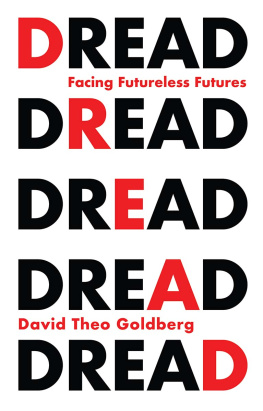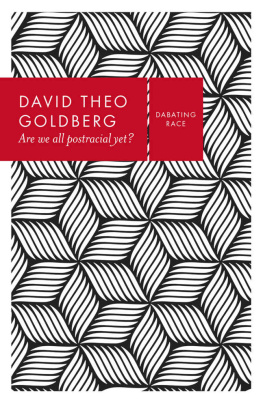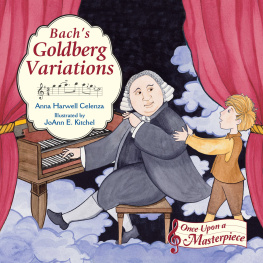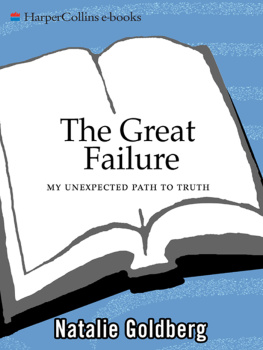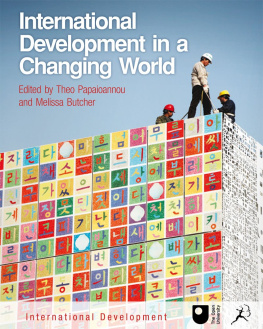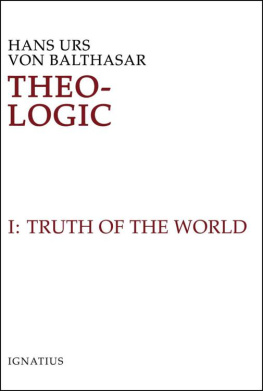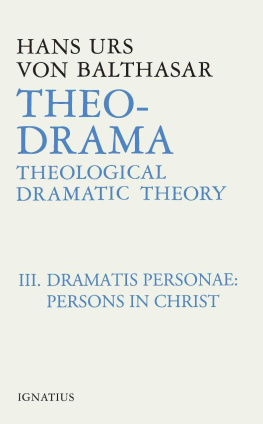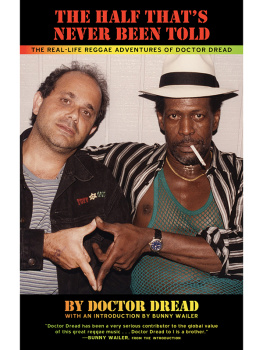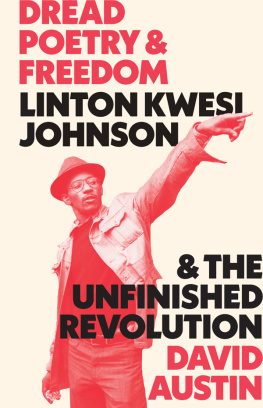David Theo Goldberg - Dread
Here you can read online David Theo Goldberg - Dread full text of the book (entire story) in english for free. Download pdf and epub, get meaning, cover and reviews about this ebook. year: 2021, publisher: Wiley, genre: Politics. Description of the work, (preface) as well as reviews are available. Best literature library LitArk.com created for fans of good reading and offers a wide selection of genres:
Romance novel
Science fiction
Adventure
Detective
Science
History
Home and family
Prose
Art
Politics
Computer
Non-fiction
Religion
Business
Children
Humor
Choose a favorite category and find really read worthwhile books. Enjoy immersion in the world of imagination, feel the emotions of the characters or learn something new for yourself, make an fascinating discovery.
- Book:Dread
- Author:
- Publisher:Wiley
- Genre:
- Year:2021
- Rating:3 / 5
- Favourites:Add to favourites
- Your mark:
- 60
- 1
- 2
- 3
- 4
- 5
Dread: summary, description and annotation
We offer to read an annotation, description, summary or preface (depends on what the author of the book "Dread" wrote himself). If you haven't found the necessary information about the book — write in the comments, we will try to find it.
Dread — read online for free the complete book (whole text) full work
Below is the text of the book, divided by pages. System saving the place of the last page read, allows you to conveniently read the book "Dread" online for free, without having to search again every time where you left off. Put a bookmark, and you can go to the page where you finished reading at any time.
Font size:
Interval:
Bookmark:
In this compelling new book, David Theo Goldberg seeks to understand the tenor and tone of our disorientation and anxiety in the world. Addressing a range of forces, globally distributed, Goldberg finds that a planetary dread has taken hold. Building upon Kierkegaard and Freud, he argues that, while fear knows its object, dread does not. This disorientation at the heart of dread characterizes, for Goldberg, a world in which epistemological and moral disorientation is the norm. He brilliantly shows that the technologies we now require to live are depriving us of the social lives required for survival. This searing impasse is at once revealed and countered in this incisive book. The hope Goldberg offers is to be found in a more profound understanding of the relational dimensions of our lives: a collective ecology of care and the social virtue of generosity in the name of what he calls a sociality without end, a livable life on and with an enduring planet empowered to renew collective aspiration.
Judith Butler, author ofThe Force of Nonviolence
David Theo Goldberg has written yet another incisive, wellinformed, and theoretically rich book. Indeed, few concepts better describe our age than that of dread. A leading voice in contemporary social theory, Goldberg astutely deploys the notion of dread to account for the dominant modes of encounter with the world in these troubled times. This most illuminating critique of our present enriches, stretches, and challenges our understanding of our potential futures.
Achille Mbembe, author ofNecropolitics
for all
refusing
futureless futures
David Theo Goldberg
polity
Copyright David Theo Goldberg 2021
The right of David Theo Goldberg to be identified as Author of this Work has been asserted in accordance with the UK Copyright, Designs and Patents Act 1988.
First published in 2021 by Polity Press
Polity Press
65 Bridge Street
Cambridge CB2 1UR, UK
Polity Press
101 Station Landing
Suite 300
Medford, MA 02155, USA
All rights reserved. Except for the quotation of short passages for the purpose of criticism and review, no part of this publication may be reproduced, stored in a retrieval system or transmitted, in any form or by any means, electronic, mechanical, photocopying, recording or otherwise, without the prior permission of the publisher.
ISBN-13: 978-1-5095-4446-2
A catalogue record for this book is available from the British Library.
Library of Congress Cataloging-in-Publication Data
Names: Goldberg, David Theo, author.
Title: Dread : facing futureless futures / David Theo Goldberg.
Description: Cambridge, UK ; Medford, MA : Polity Press, 2021. | Includes bibliographical references and index. | Summary: A brilliant diagnosis of the ubiquitous mood of our times-- Provided by publisher.
Identifiers: LCCN 2020052818 (print) | LCCN 2020052819 (ebook) | ISBN 9781509544448 (hardback) | ISBN 9781509544455 (paperback) | ISBN 9781509544462 (epub) | ISBN 9781509548699 (pdf)
Subjects: LCSH: Risk--Sociological aspects. | Anxiety--Social aspects. | Civilization, Modern--Psychological aspects. | Future, The--Psychological aspects.
Classification: LCC HM1101 .G65 2021 (print) | LCC HM1101 (ebook) | DDC 302/.12--dc23
LC record available at https://lccn.loc.gov/2020052818
LC ebook record available at https://lccn.loc.gov/2020052819
The publisher has used its best endeavours to ensure that the URLs for external websites referred to in this book are correct and active at the time of going to press. However, the publisher has no responsibility for the websites and can make no guarantee that a site will remain live or that the content is or will remain appropriate.
Every effort has been made to trace all copyright holders, but if any have been overlooked the publisher will be pleased to include any necessary credits in any subsequent reprint or edition.
For further information on Polity, visit our website: politybooks.com
As 2016 unfolded, a recognition gathered pace that the world was less settled than it had seemed. Syria had torn itself apart in a seemingly endless civil war, and fleeing refugees were overloading Lebanon and flowing into Europe. ISIS had maximized its power and territorial spread as the year opened, expanding beyond Iraq, controlling much of Northern Syria, and mobilizing in other Middle Eastern and North African countries while recruiting more broadly in Europe. A series of coordinated attacks in Paris in November 2015 had killed 130. Six months later, a supporter gunned down nearly fifty people in an Orlando nightclub catering to a largely gay clientele. Rather than liberating Afghanistan and Iraq, the sustained securing had extended the devastation and unsettlement. The June 2016 outcome of the Brexit referendum and Trumps support, locally and globally, propelling him to election in November confounded the complacent. Sexual harassment and racist violence were openly proliferating. The planet surpassed the carbon threshold, global temperatures soared, the ice cap was melting at a record pace, storm systems became more devastating, and species were being wiped out.
By early 2017, many were waking each morning to wonder what disaster faced them, what sinister arrangements, what enclosures and exclusions, would be enacted by authoritarian leaders worldwide with smiling approval from their thrilled supporters. I couldnt quite put my finger on the uncanny upset pouring from most everyone with whom I interacted, in person and virtually. That summer, the sensibility manifested more clearly for me. Dread had gripped life.
Over the ensuing year, the feeling grew. Others readily concurred. But it was also becoming apparent that the rising authoritarianism across a growing number of societies was symptomatic, as it invariably is, of a deeper set of structural forces, while exacerbating them. This book is an attempt to make sense as much of the range and proliferation of underlying prompts as of the sensibility itself. A great deal has, of course, been written about the impacts on our lives of the technological revolution, of climate change, and of racial conflagration. Over the past year, the COVID-19 pandemic quickly became the pressing subject of our time, perhaps understandably eclipsing most everything else. The experience produced not just an explosion of scientific literature but also a slew of writing on the experience, the racial and class differentiations, and compelling critical contributions on the turn to the empirical, detection, the immunological, and the right to breathe.
The pandemic, however, also prompted predictable critical accounts by notable public philosophers intent on fitting breaking events into their preconceived theories. Slavoj iek (2020), for one, focused, perhaps predictably, on the contorted political panics to which the pandemic inevitably gave rise, the improbably renewed prompting of socialisms possibility as the driving viral fallout. Bernard-Henri Lvy (2020) dismissed everyone elses stupidity in accepting thoughtlessly the curtailments of their freedoms. Mostly more nuanced, Giorgio Agamben (2020a, 2020b) stressed how readily governments he was especially concerned with the Italian state response in the early days elevated a techno-medical despotism, looking to the disciplinary technologies of delimiting liberties, the devaluation of human sociality underpinning these moves, and the fascistic reduction to bare life.
A tendency among some analysts to forgo a more subtle, relational, and intersectional account of social positioning prompted an occasional declaration that all members of a racial group, for example, would be subjected to the same deathly experience in an emergency room no matter what their class standing and professional networks. Dread takes hold of the unexpecting. The pandemic nevertheless neither materialized nor has operated in a social vacuum. It is implicated in and has magnified a compound of social factors, at once enabling or advancing novel modes of control while fracturing social forces in less containable fashion. This calls for a more interactively nuanced analysis of the social field than any reductively self-replicating and selfreinforcing account warrants (cf. Hartman 2020; and Cottom 2019 for a more subtle reading of the social field of health).
Font size:
Interval:
Bookmark:
Similar books «Dread»
Look at similar books to Dread. We have selected literature similar in name and meaning in the hope of providing readers with more options to find new, interesting, not yet read works.
Discussion, reviews of the book Dread and just readers' own opinions. Leave your comments, write what you think about the work, its meaning or the main characters. Specify what exactly you liked and what you didn't like, and why you think so.

